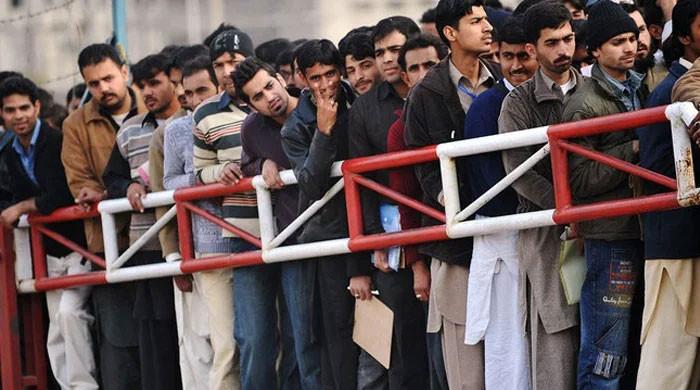Half of the world’s population is under the age of 30, and Pakistan, where 64 percent of the population falls into this age group, reflects a similar trend.
One might hope that this heralds a promising future with vibrant and talented minds ready to contribute to the development of their country. However, reality paints a different picture. Despite their numbers, young voices are often sidelined. Older generations continue to hold power with outdated governance methods that remind us of a bygone era and fail to resonate with the needs and aspirations of young people.
Thus, despite demographic advantages, a reluctance to embrace change and a failure to recognize the evolving dynamics of the modern world means that young people’s potential remains untapped. I am.
We are talking in terms of the number of electors, according to voter data from the Election Commission of Pakistan. Of the total registered voters (56.8 million voters), 44.1 percent are between the ages of 18 and 35. According to Pakistan Gallup exit polls, the February 8 election had the highest turnout ever at 48 percent, 11 percent higher than the 2018 general election.
Keeping this huge number in mind, of the 265 recently elected members of Pakistan’s parliament, only 10 are between the ages of 26 and 35, which is 4.0 percent, according to data collected by Geo News. Less than.
Pakistani politicians from all walks of life love to talk about the potential of Pakistan’s youth. They advertise during elections to win important votes. But when it comes to actually empowering young people, let’s just say their actions don’t match their words.
Politically, there is resentment towards young people. They are seen as irresponsible, troublemakers, and not mature enough to sit at the table and make decisions for themselves and future generations. They are encouraged to become bankers, doctors, engineers, but it is truly sacrilegious for them to even think about becoming politicians.
This resentment is real because there is no way for young people to demonstrate and demonstrate their leadership skills. For example, Pakistan has had a total ban on student unions for the past 40 years, and despite promises, student unions remain banned in the country. In other words, it is a training ground for future political leaders, where they can not only learn about democracy theoretically, but also put it into practice.
Many of the political leaders who had the political acumen to influence national politics or play a role in a given era emerged through student unions. Raza Rabbani, Jahangir Bader and Pervaiz Rashid are some of the names who have made it big in politics without having a dynastic political background or old money to back their candidacy.
Next comes the option of local government elections. We have seen time and time again how political parties are reluctant to hold local government elections in states and the federal capital. Even with court intervention, local government structures remain weak, with most powers vested in unelected bureaucracies and development funds to which MPAs and MNAs belong.
Furthermore, there is no mechanism within political parties to identify young leaders within the party organization and make them part of the leadership, or at least train them to become future leaders. They are giving leave to young families of political dynasties loyal to the party and members who will win them seats, all for cynical reasons that fall short of even the altruistic slogan of youth empowerment. do not have.
According to the Be Seen Be Heard Global Youth Survey, a majority of people share the opinion that age group representation in current politics is unfair. 69% of all age groups agree that increasing opportunities for young people to participate in policy-making would improve the effectiveness of political systems.
Political parties need to understand that serious consideration of solving Pakistan’s complex problems requires a sound and comprehensive approach. These existential issues range from climate change, threats to democracy, economic downturn, unemployment, and extremism.
Decisions that affect future generations cannot be made alone. We must move beyond slogans and rhetoric now. In the same way that elite interests are protected and given state patronage, young people should be empowered.
For democracies to thrive, economies to thrive, and issues like climate change to be tackled, young people must be given serious representation across national, state, and local governments.
The author is a youth activist. His tweet/post: Mustafa_wynne

